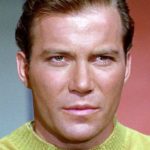America’s last several years have been fraught with dissension. Tempers have flared and arguments have been fought in the months since Donald Trump was elected president, causing many to plead for civility and rationality in interactions.
But now the gloves seem to be coming off. Several venues seem to be suggesting that civility is not the answer, including a prominent New York Times article. And it may be this disinterest in civility which is the driving force behind fears of Civil War 2.0, a fear which Rasmussen Reports recently discovered is held by more than 30 percent of the population.
This country will always find itself with differing voices. But is it possible that the current dissension is more contentious because so many of us forget – or never knew – how our nation came about in the first place?
That idea isn’t as far-fetched as we might like to believe. As the Nation’s Report Card indicates, only 12 percent of high school seniors are proficient in U.S. history. If roughly nine in 10 students coming out of our nation’s public schools have a minimal grasp on how our country came to be, then perhaps some stones of remembrance from the Founders themselves are in order.
According to James Madison, the founding of America was unlike the founding of any other nation, for it balanced ingenuity and common sense with respect for the past:
“Is it not the glory of the people of America, that whilst they have paid a decent regard to the opinions of former times and other nations, they have not suffered a blind veneration for antiquity, for custom, or for names, to overrule the suggestions of their own good sense, the knowledge of their own situation, and the lessons of their own experience? … Happily for America, happily we trust for the whole human race, they pursued a new and more noble course. They accomplished a revolution which has no parallel in the annals of human society: They reared the fabrics of governments which have no model on the face of the globe.”
John Adams concurs that American independence was a unique occurrence, but he suggests it was only possible because of a changing mindset amongst the people:
“The American Revolution was not a common event. … The Revolution was effected before the war commenced. The Revolution was in the minds and hearts of the people; a change in their religious sentiments of their duties and obligations. … This radical change in the principles, opinions, sentiments, and affections of the people, was the real American Revolution.”
As Adams goes on to explain, this change in mindset was remarkable because the people in the colonies came from diverse religious, ethnic, and cultural backgrounds.
But as other Founders are careful to note, the blending of these diversities would not have been possible except for one other factor: Providence. George Washington, a man whose religious beliefs have long been the subject of debate, attributed the preservation of the struggling American army to Him on several occasions, noting the following in 1778:
“The hand of Providence has been so conspicuous in all this, that he must be worse than an infidel that lacks faith, and more than wicked, that has not gratitude enough to acknowledge his obligations….”
Washington was joined in this opinion by Deist Benjamin Franklin, who said:
“All of us who were engaged in the struggle must have observed frequent instances of a superintending providence in our favor. To that kind providence we owe this happy opportunity of consulting in peace on the means of establishing our future national felicity. And have we now forgotten that powerful friend? or do we imagine that we no longer need his assistance? I have lived, Sir, a long time, and the longer I live, the more convincing proofs I see of this truth- that God Governs in the affairs of men. And if a sparrow cannot fall to the ground without his notice, is it probable that an empire can rise without his aid?”
Astonishingly, Franklin went on to prophesy what would happen to any nation which did not acknowledge the aid of Providence in its endeavors:
“We have been assured, Sir, in the sacred writings, that ‘except the Lord build the House they labour in vain that build it.’ I firmly believe this; and I also believe that without his concurring aid we shall succeed in this political building no better, than the Builders of Babel: We shall be divided by our little partial local interests; our projects will be confounded, and we ourselves shall become a reproach and bye word down to future ages.”
What’s fascinating about these remembrances of the Founders is that they when they wrote them they were struggling with the very same issues we face today. Like us, they were navigating major political and cultural differences amongst the citizenry. Like us, they were facing unrest and an uncertain future. But they overcame these difficulties and were the stronger for them.
The question remains, what did they have that we do not? Is it a respect for the past? A greater understanding of principles and ideas? Or might it also be a firmer trust and reliance upon Providence?
They pulled through. Will we?
[Image Credit: Public Domain]
This post How Early America Overcame Unrest and Cultural Diversity was originally published on Intellectual Takeout by Annie Holmquist.





1 comment
… [Trackback]
[…] Read More to that Topic: thelibertarianrepublic.com/how-early-america-overcame-unrest-and-cultural-diversity/ […]